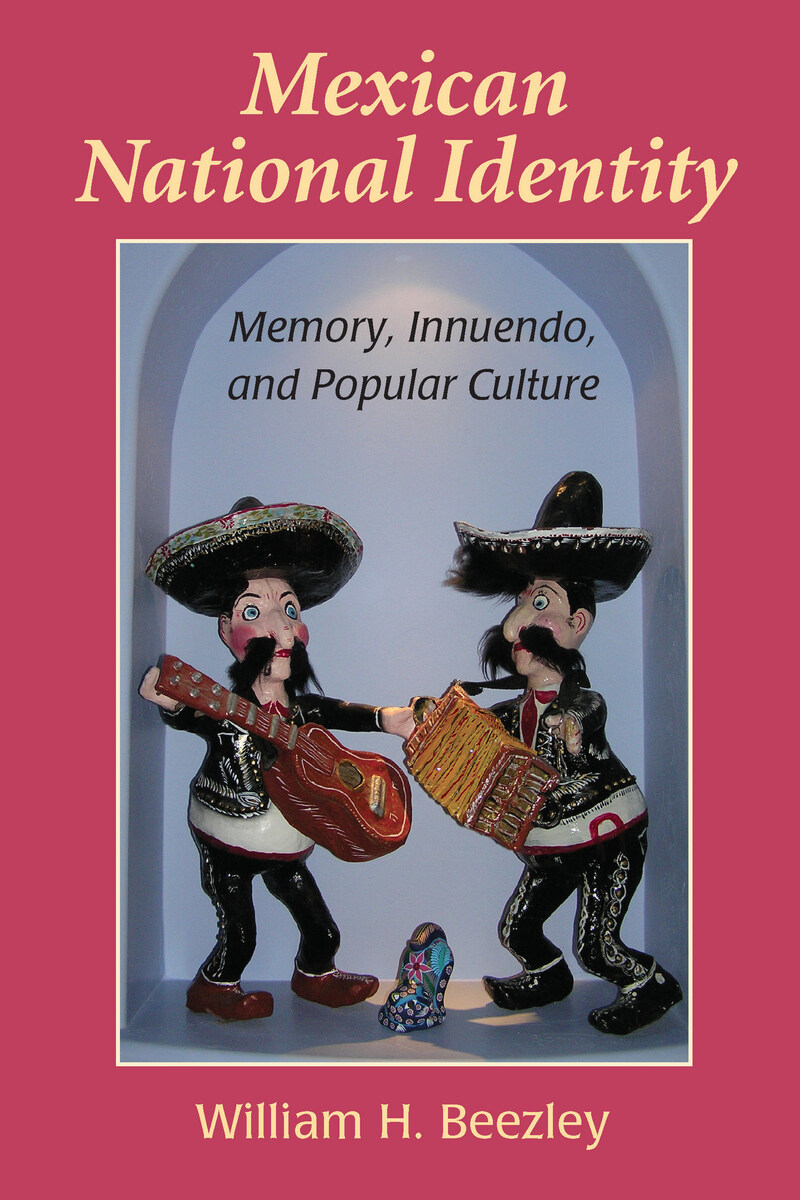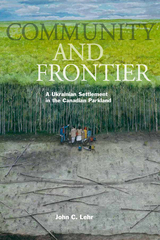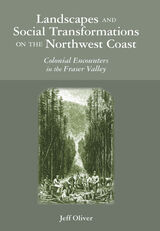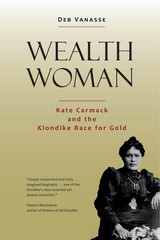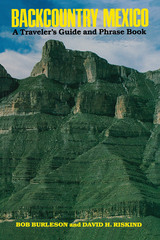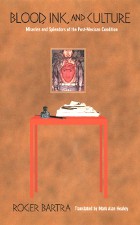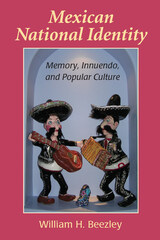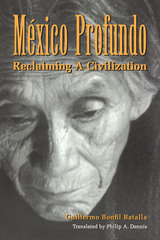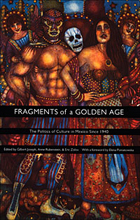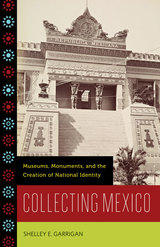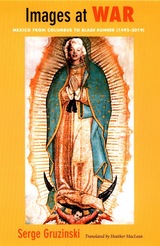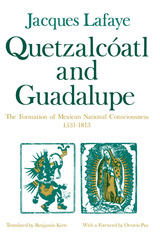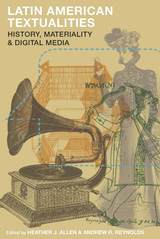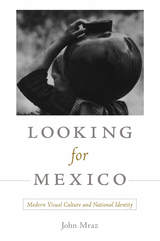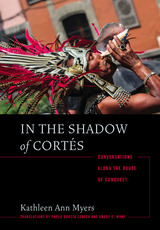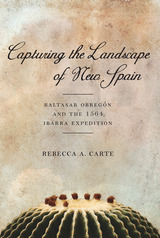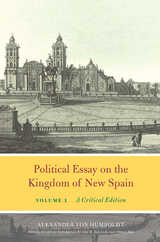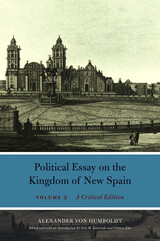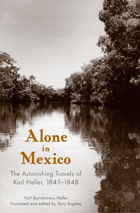Mexican National Identity: Memory, Innuendo, and Popular Culture
University of Arizona Press, 2008
Cloth: 978-0-8165-2689-5 | eISBN: 978-0-8165-4337-3 | Paper: 978-0-8165-2690-1
Library of Congress Classification F1210.B34 2008
Dewey Decimal Classification 972
Cloth: 978-0-8165-2689-5 | eISBN: 978-0-8165-4337-3 | Paper: 978-0-8165-2690-1
Library of Congress Classification F1210.B34 2008
Dewey Decimal Classification 972
ABOUT THIS BOOK | AUTHOR BIOGRAPHY | REVIEWS | TOC
ABOUT THIS BOOK
In this enlightening book, the well-known historian William Beezley contends that a Mexican national identity was forged during the nineteenth century not by a self-anointed elite but rather by a disparate mix of ordinary people and everyday events. In examining independence festivals, children’s games, annual almanacs, and the performances of itinerant puppet theaters, Beezley argues that these seemingly unrelated and commonplace occurrences—not the far more self-conscious and organized efforts of politicians, teachers, and others—created a far-reaching sense of a new nation.
In the century that followed Mexico’s independence from Spain in 1821, Beezley maintains, sentiments of nationality were promulgated by people who were concerned not with the promotion of nationalism but with something far more immediate—the need to earn a living. These peddlers, vendors, actors, artisans, writers, publishers, and puppeteers sought widespread popular appeal so that they could earn money. According to Beezley, they constantly refined their performances, as well as the symbols and images they employed, in order to secure larger revenues.
Gradually they discovered the stories, acts, and products that attracted the largest numbers of paying customers. As Beezley convincingly asserts, out of “what sold to the masses” a collective national identity slowly emerged. Mexican National Identity makes an important contribution to the growing body of literature that explores the influences of popular culture on issues of national identity. By looking at identity as it was fashioned “in the streets,” it opens new avenues for exploring identity formation more generally, not just in Mexico and Latin American countries but in every nation.
Check out the New Books in History Interview with Bill Beezley!
In the century that followed Mexico’s independence from Spain in 1821, Beezley maintains, sentiments of nationality were promulgated by people who were concerned not with the promotion of nationalism but with something far more immediate—the need to earn a living. These peddlers, vendors, actors, artisans, writers, publishers, and puppeteers sought widespread popular appeal so that they could earn money. According to Beezley, they constantly refined their performances, as well as the symbols and images they employed, in order to secure larger revenues.
Gradually they discovered the stories, acts, and products that attracted the largest numbers of paying customers. As Beezley convincingly asserts, out of “what sold to the masses” a collective national identity slowly emerged. Mexican National Identity makes an important contribution to the growing body of literature that explores the influences of popular culture on issues of national identity. By looking at identity as it was fashioned “in the streets,” it opens new avenues for exploring identity formation more generally, not just in Mexico and Latin American countries but in every nation.
Check out the New Books in History Interview with Bill Beezley!
See other books on: Beezley, William H. | Innuendo | Memory | Mexican National Identity | National characteristics, Mexican
See other titles from University of Arizona Press
